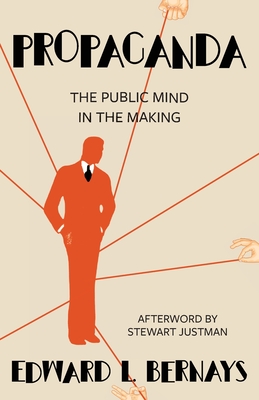
description
1928 book by Edward L. Bernays, stands as a foundational text in understanding the mechanisms of public persuasion and manipulation. Bernays delves into the art and science of influencing public opinion, drawing from his extensive experience in the field of public relations. He explores the ways in which propaganda can shape perceptions, attitudes, and behaviors on a mass scale, often without individuals realizing the extent of their manipulation. Bernays not only elucidates the techniques employed in propaganda but also reflects on its ethical implications and societal consequences. Propaganda holds significance in culture as it unveils the subtle mechanisms at play in shaping public discourse and decision-making processes. It serves as a cautionary tale, urging readers to critically analyze the information they encounter and to be vigilant against manipulation in an increasingly mediated world. Moreover, the book underscores the power dynamics inherent in communication, challenging readers to consider the ethical responsibilities of those who wield such influence. A cornerstone of media studies and communication theory, Propaganda continues to provoke discourse on the nature of persuasion and the role of propaganda in shaping modern society. This Warbler Classics edition includes an afterword entitled "Freud and His Nephew" by Stewart Justman and a biographical timeline.
member goods
No member items were found under this heading.
Return Policy
All sales are final
Shipping
No special shipping considerations available.
Shipping fees determined at checkout.







